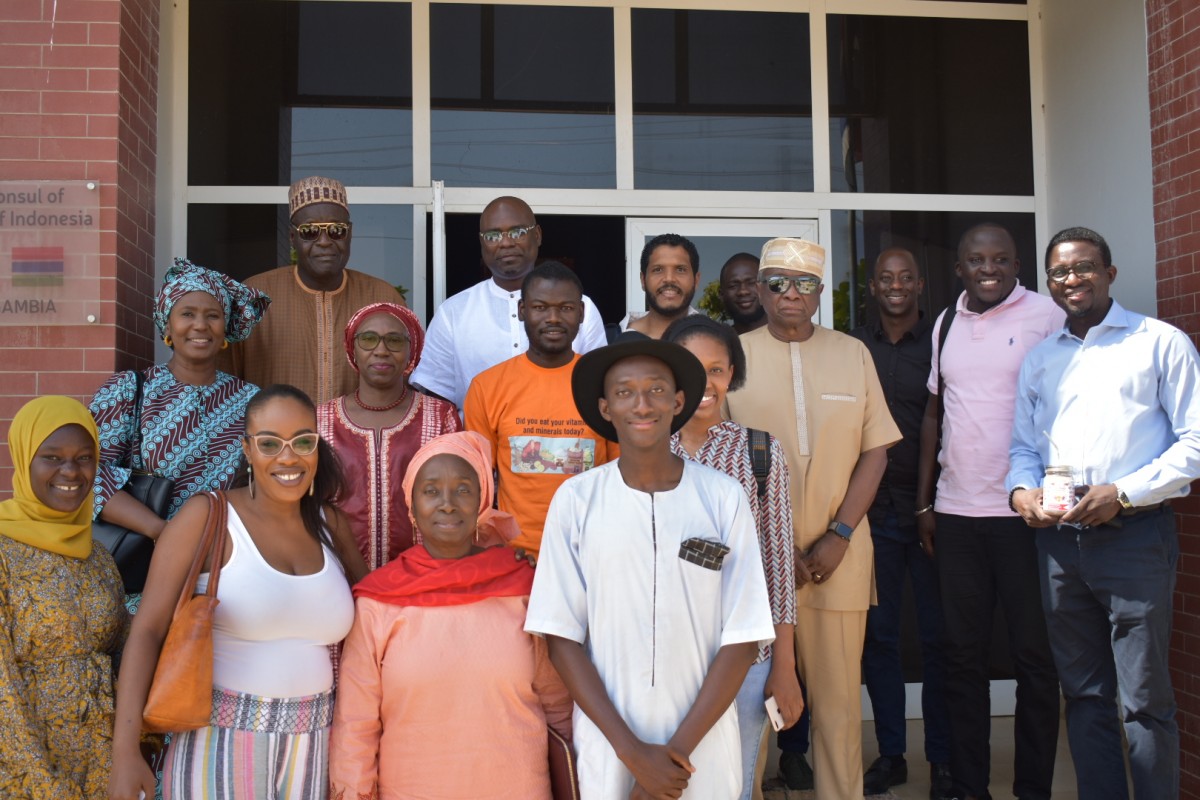Artisan handbag maker taking her enterprise forward, and receiving new financing
About 20% of small businesses fail in the first year. This happens for a variety of reasons, from a faulty business structure to ineffective marketing to lack of capital.
And for women starting businesses, there are a host of additional hurdles, not least of which is difficulty accessing financing.
[related-article]
But small businesses are also the backbone of economies across the world, and for less developed economies, those enterprises are even more essential.
So, if aiming for the trifecta of supporting small businesses, women and struggling economies, it makes a lot of sense to laser focus on generating capital for the women-owned enterprises in developing countries.
That is what a new effort in The Gambia is attempting.
Going local
“We say angel investment is a local sport, meaning when you invest in a small company you need to know the environment you are investing in, you need to know the sector and be available for hands-on support, so being local is critical. All of our angels are from The Gambia including a few Gambians from the diaspora,” said Adrame Ndione, head of the Gambia Angel Investors Network (GAIN).
The network of 14 ‘angels’ formed last year, and recently made its first investment after a series of pitches. The beneficiary is Adiatou Conteh, owner of Daraja Ltd. Conteh designs bespoke handmade bags of locally processed leather done by female tanners, and has been selling her creations out of her concept store in the tourist centre of Senegambia, as well as via her website www.darajaboutique.com.
“The initial idea was to have a platform for the artisans in the craft markets because in The Gambia most of the artisans rely on the tourist season which is only six months out of the year. I wanted to give them a platform where they could showcase their work, go digital and move with the times. Unfortunately, that didn’t work out according to plan, so I had to recoup and re-strategize and see what was actually working – and I saw the leather bags were working,” Conteh said of the origins of Daraja.
She started working directly with artisans who crafted in leather and developing her own designs. That progressed into branding and a proper business.
At the same time, an endeavour called SheTrades by the International Trade Centre and the government, and supported by the Enhanced Integrated Framework, was progressing in The Gambia to support women in business like Conteh.
Presentation in progress
Abdoulie Jammeh, Deputy Permanent Secretary at the Ministry of Trade, said, “Most of these companies need support in building capacity not only in quality but improving the presentation in the market. SheTrades has played a major role in the last 1 1/2 years, helping these companies with quality and presentation.”
Part of the SheTrades work is direct support to women-owned businesses, with trainings on business planning, fashion merchandising and more.
Fiona Coleman, a UK-based expert in the fashion field, is working with a select group of businesses that are a part of the SheTrades network in The Gambia that includes Daraja.
“Part of my training with the women is to open their eyes to the opportunities, but also the challenges, of selling internationally. For example, many are used to creating one-off items for the local population, but not producing a coordinated range or bulk production. This is a different skill and mindset. They need to think, ‘If I am producing more than one of something how do I achieve consistency, to be able to make in quantity and retain quality?’ So the entrepreneurs who are looking to sell outside of the Gambia are taking this advice and running with it,” Coleman said.

For Conteh, she is looking at sourcing consistent textiles for use in her new designs, opening a new storefront, and working with Coleman on the colour selection for international audiences and marketing.
With the arrival of GAIN financing, she also has a fresh business plan.
“I had to go through the process of looking through my business and my performance financially over the years. As a creative sometimes you focus more on the creative side of the business so it’s been really helpful for me to look through my accounts,” Conteh said.
“It was the process of due diligence and deep dive sessions in regards to the management of my business and sales that I doubt I would have been able to do. It was a good experience for me because it’s given me the sense to know I’ve been able to achieve this financially in these past few years, and now this is what I want to achieve moving forward.’”
Future focus
For Ndione and GAIN, they are continuing to look for other small businesses to finance while working with Conteh on strategically targeting sales in the country, in the region and internationally.
“Being a great brand in The Gambia is good. The next biggest market is Senegal with quite a lot more competition, but it is critical to be there. It helps the brand to be recognized in West Africa, its primary market. Increasing sales outside of the continent is great and will allow international recognition,” Ndione said.
Speaking of both SheTrades and GAIN, he said, “From our small initiative I think we are really making a difference, it’s not just about giving grants, it’s tying the money to an actual private investment that is possible only when the business has the potential for sustainable growth. That’s where your money and your actions can have real impact for the business and for the country.”
“For me, it’s quite important to have a win-win deal. I think the company’s products are amazing and with the right support from our network, Adi will do really great,” he added.
Conteh continues to foster her own ideas, while adapting to the new financing and the new global situation.
“What we really want to do right now is focus more on the part of the plan to expand locally on the ground online and gradually expanding our market to the West African region and other stockists outside of Africa to make Daraja an international luxury brand,” she said.
But even with a new store, new branding and new collections, Conteh still cultivates the same spirit that she started Daraja with from her love of local arts and the crafts market.
“Anytime I had visitors from abroad, I just wanted them to take away a piece of The Gambia,” she said.

Adiatou Conteh (bottom, second from left) poses with GAIN's angel investors and others.
---------------------
SheTrades projects in Zambia and The Gambia are supported by EIF's Empower Women, Power Trade initiative, which aims at transforming the economic lives of women in least developed countries (LDCs). Aiming to impact 50,000 women by 2022, Empower Women, Power Trade is also supporting projects in Haiti, Ethiopia and Burundi in partnership with EQUALs.
If you would like to reuse any material published here, please let us know by sending an email to EIF Communications: eifcommunications@wto.org.


